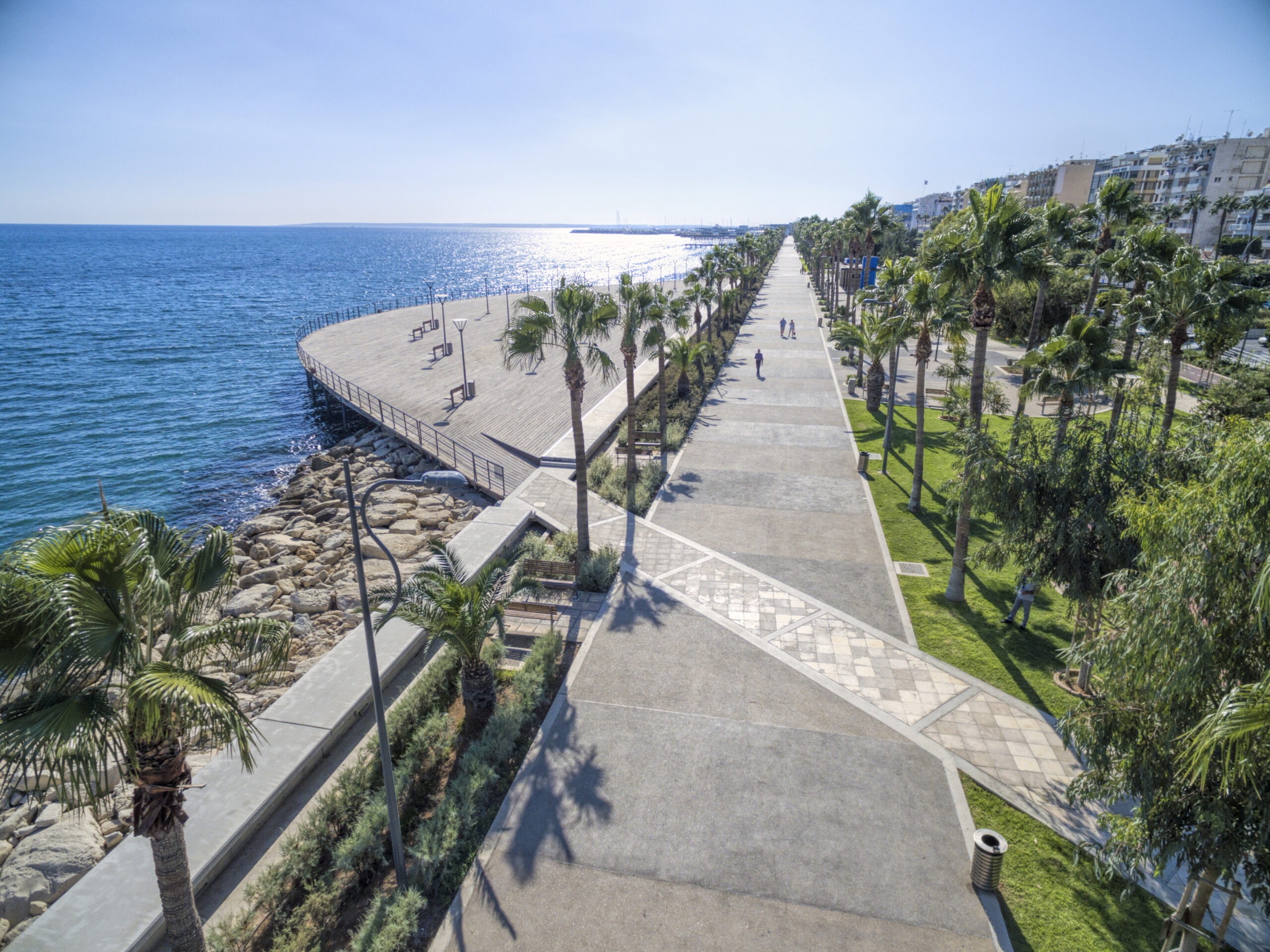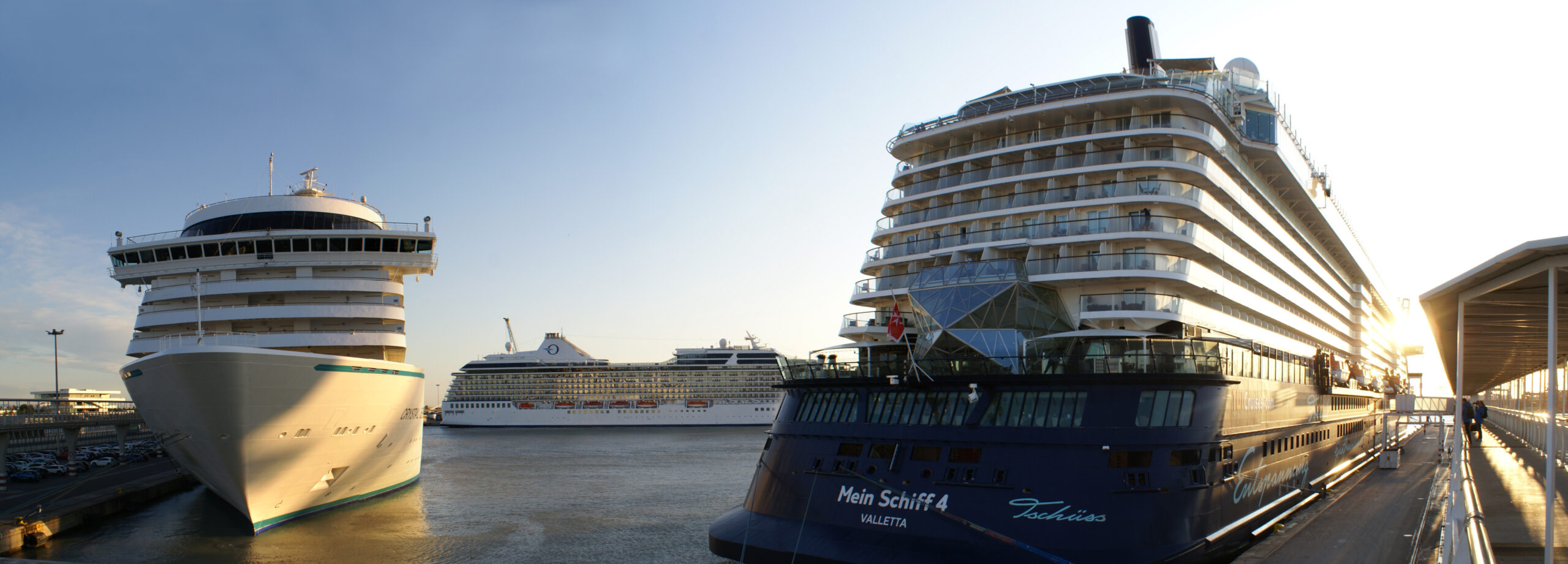
What we do
Persistent challenges, like overtourism, continue to affect destinations and communities across the Mediterranean region; TOURISMO aims at addressing these challenges by using innovative technologies that offer new solutions and novel services to monitor and manage tourist flows. Better flows handling will be implemented through the development of a monitoring and decision-making support management structure and testing in 8 MED pilot sites. The approach is based on utilizing data from various datasets and on-site technologies (i.e. thermal cameras, pax counters, drones, tags) relevant to tourists’ presence, density, trajectories, and behaviors.
HOW WILL WE DO IT?

- Utilize open-big-smart data, ICT tools, on-site equipment, and innovative methodologies for tourism flow management
- Deliver a monitoring & decision-making support management system, exploiting innovative data technologies
- Pilot test in 8 MED pilot areas with a variety of characteristics, enabling replicability in other areas
- Ensure the transferability and sustainability of project results by way of communication and exploitation of results
GLOSSARY
Tourism Transition Pathway:
Proposed by the EU Commission to help the transformation of industrial ecosystems after the Covid-19 pandemic.
As the tourism ecosystem was the hardest hit by the pandemic and faces major challenges to achieve the twin transition, it was the first industrial ecosystem in which a co-creation process was launched to develop a transition pathway. The pathway is structured in different topics affecting most of the business growing strategies in a sustainable way. The currentProject will particularly focus on:
- Topic 4: Comprehensive tourism strategies development or update;
- Topic 7: Circularity of tourism services;
- Topic 8: Green transition of tourism companies and SMEs;
- Topic 11: Easily accessible best practice, peer learning and networking for SMEs;
- Topic 16: Support for digitalization of tourism SMEs and destinations;
- Topic 19: Awareness raising on skills needs for twin transition in tourism;
- Topic 20: Awareness raising on changes in tourism demand and the opportunities of twin transition for tourism;
- Topic 26: Tourism services for visitors and residents alike.
Experiential Tourism:
Experiential tourism can be considered an increasing trend in global tourism, which especially developed after the Covid-19 pandemic, since travelers started more and more seeking immersive experiences providing a sense of adventure, discovery, and culture. Experiential tourism aims for a deeper emotional connection for visitors and supports more sustainable and low impact tourism. Experiential tourism is now opening new markets and engaging new and diverse tourism providers and stakeholders. This new consumer-led demand is also a field on which the current project aims at focusing its attention, providing new approaches and new sustainable and innovative ways for tourism business models.
Twin transition:
Includes the green and digital transitions, the need to enhance the Union’s economic and social resilience. The green transition is an opportunity to put Europe on a new path of a sustainable and inclusive growth. In addition to tackling climate change, it will help reduce energy bills and dependence on fossil fuel imports, thus improving energy and resource security of the Union. Concurrently, the coronavirus pandemic has accelerated the digital transformation of our societies and highlighted the importance of digital technologies for Europe’s future economic growth. The EU has identified the need to step up investments in key digital technologies, including cyber security, cloud computing, artificial intelligence, data spaces, blockchain and quantum computing, and semiconductors, as well as in the relevant skills. A fair digital transformation has the potential to increase the innovation and productivity of the EU economy, offering new opportunities for people and businesses. The digital transition will also contribute to the green objectives, with synergies in many areas of a smart circular economy.
Green Economy:
A green economy is an economic approach that aims at reducing environmental risks and ecological dangers, encouraging sustainable development without degrading the environment. The European Commission has adopted a set of proposals to make the EU’s climate, energy, transport, and taxation policies fit for reducing net greenhouse gas emissions by at least 55% by 2030, compared to 1990 levels (i.e. the European Green Deal).
Digital Transformation:
The process of bringing digital technology to businesses, citizens, and public administrations. In line with the scope of looking at a greener Europe through the European Green Deal, the European Commission, at the same time, has begun opening up discussions about the move to a more digital world: the digital transition. Through the Digital Europe Programme, the European Commission provides strategic funding to answer the challenges related to digitalization processes, supporting projects in five key capacity areas: in supercomputing, artificial intelligence, cybersecurity, advanced digital skills, and ensuring a wide use of digital technologies across the economy and society, including through Digital Innovation Hubs.
EMAS – Eco-Management and Audit Scheme:
An important tool within the framework of one of the main building blocks of the European Green Deal. Its goal is to drive organisations towards circularity and reduce their impact on the environment. The overall environmental performance of the organisation/company is improved and regularly verified through EMAS.
This is achieved by:
- identifying their direct and indirect environmental impacts and establishing voluntary objectives and targets to reduce them;
- establishing and implementing robust environmental management systems with the identified measures;
- systematically evaluating their effectiveness and transparently reporting on environmental performance;
- enhancing transparency by publishing their environmental statement and engaging in open dialogues with the public and stakeholders;
- recognising their efforts by a third-party accredited environmental verifier;
- encouraging active employee involvement and providing training.
By embracing EMAS, organisations strive for continuous improvement of their environmental performance.
Conscious Tourism:
A strong motivation to contribute to the improvement of society and the environment lie at the heart of Conscious Tourism. Conscious Tourism is comprised of 3 elements: sustainable tourism, ecotourism, and responsible travel. Its purpose is to benefit the local community and to respect and protect the environment. Conscious tourism requires the consideration of various surrounding factors, before deciding on how, when, and where to travel.

